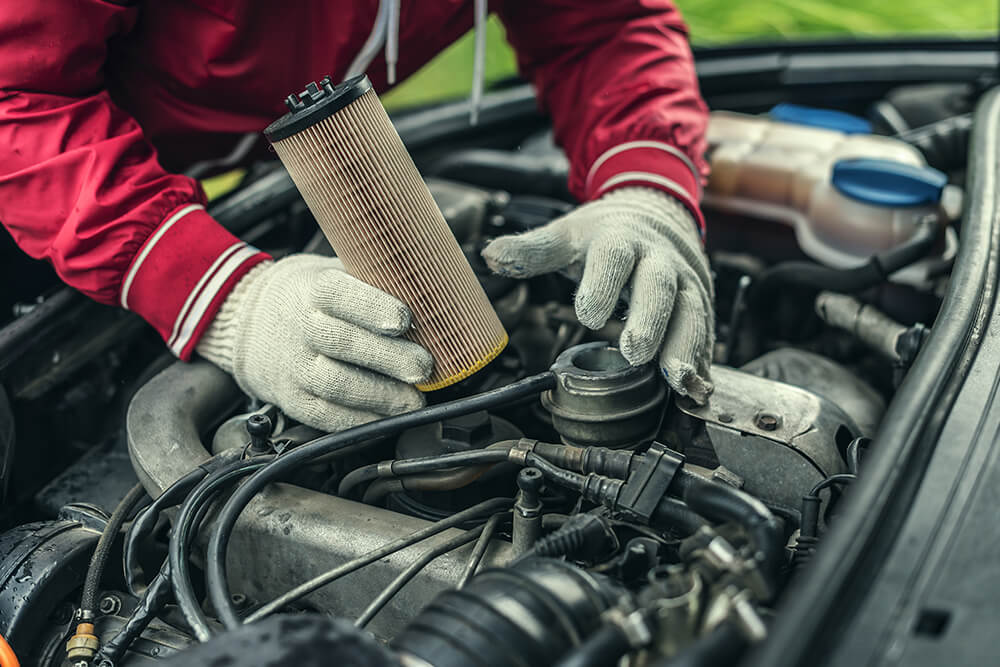Why Is My Fuel Filter Causing Problems?
A fuel filter can cause problems due to clogging or contamination, leading to fuel flow issues. Fuel filters can be a common culprit behind various car troubles.
Clogging or contamination can restrict the flow of fuel to the engine, resulting in poor performance, reduced fuel efficiency, engine misfires, or even stalling. When the fuel filter becomes clogged with dirt, debris, or sediment, it hampers the fuel flow, forcing the engine to work harder to get the required fuel.
This increased strain can lead to a range of problems, including reduced power, sluggish acceleration, and difficulty starting the engine. Regularly replacing the fuel filter and ensuring it remains clean can help prevent these issues and ensure optimal vehicle performance.

Credit: erautocare.com
Common Fuel Filter Problems
Fuel filters play a crucial role in keeping your vehicle running smoothly. However, they can experience several issues that may impact your engine’s performance.
Clogged Filter
A clogged fuel filter can restrict the flow of fuel to your engine, causing it to struggle and potentially stall. Over time, debris and contaminants build up, leading to blockages in the filter.
Contaminated Fuel
Contaminated fuel, such as dirt or rust particles, can enter your fuel system and clog the filter. This can lead to engine misfires and poor performance, affecting your vehicle’s efficiency.
Impact On Vehicle Performance
A clogged fuel filter can impede the flow of gasoline and cause engine misfires, decreased power, and poor acceleration. This results in reduced fuel efficiency, leading to potentially costly repair bills if not addressed promptly. Regular maintenance and timely filter replacements can help prevent these problems and keep your vehicle’s performance at its best.
Engine Misfires
An untreated or clogged fuel filter can lead to engine misfires, which can seriously impact the smooth operation of your vehicle. When the fuel filter becomes dirty or obstructed, it restricts the flow of fuel that reaches the engine. This reduction in fuel supply can disrupt the combustion process in the engine cylinders, causing a misfire.
Engine misfires can manifest in various ways, such as a noticeable loss of power, rough idling, or hesitation during acceleration. These symptoms can be frustrating and compromise the overall performance of your vehicle. Ignoring the problem for an extended period can put additional strain on other engine components and result in more severe issues.
Poor Fuel Efficiency
A faulty fuel filter can significantly impact your vehicle’s fuel efficiency, leading to an increase in fuel consumption and costly trips to the gas station. A clogged fuel filter restricts the amount of fuel that reach
Signs Of A Faulty Fuel Filter
A fuel filter that is not functioning properly can lead to a variety of issues with your vehicle’s engine. It is important to be aware of the signs of a faulty fuel filter so that you can address the problem promptly and prevent further damage.
If you notice that your engine is sputtering or misfiring during acceleration or at high speeds, it could be a sign of a clogged fuel filter. A clogged filter restricts the flow of fuel to the engine, causing it to receive an insufficient amount of fuel. This results in a lack of power and a rough running engine.
Another indication of a faulty fuel filter is difficulty starting your vehicle. A clogged filter can prevent the flow of fuel from reaching the engine, making it harder for your car to start. You may experience a delay or hesitation when turning the key in the ignition, or the engine may fail to start altogether.

Credit: www.autozone.com
Preventive Maintenance
Regular maintenance of your fuel filter is essential to avoid potential problems and ensure your vehicle runs smoothly.
Regular Filter Replacement
Regularly replacing your fuel filter helps maintain optimal fuel flow and prevents contaminants from reaching your engine.
Using Quality Fuel
- Opt for high-quality fuel to minimize the build-up of debris and sediment within the filter.
- Ensure your fuel comes from reputable sources to reduce the risk of filter clogging.
Professional Intervention
When it comes to fuel filter problems, seeking professional intervention is essential for accurate diagnosis and effective resolution. A qualified mechanic can provide the expertise and tools necessary to identify and address issues with your fuel filter.
Diagnosis By Mechanic
A mechanic will conduct a thorough inspection of your vehicle’s fuel system to pinpoint the specific problems stemming from a faulty fuel filter. Using specialized diagnostic equipment, the mechanic will evaluate the fuel pressure and flow, as well as assess the condition of the filter to determine if it’s causing blockages or contamination.
Filter Replacement
If the diagnosis reveals that the fuel filter is indeed the root of the problem, the mechanic will proceed with a professional filter replacement. This involves removing the old, clogged filter and installing a new one that meets the manufacturer’s specifications. The mechanic will also ensure proper sealing and secure attachment to prevent leaks or malfunction.

Credit: m.facebook.com
Frequently Asked Questions On Why Is My Fuel Filter Causing Problems?
How Does A Car Act When The Fuel Filter Is Bad?
A car with a bad fuel filter may sputter, hesitate, or stall due to inadequate fuel flow. Increased engine noise and difficulty starting may also occur.
What Happens If A Fuel Filter Gets Blocked?
If a fuel filter gets blocked, it can cause several issues with your vehicle. It can reduce fuel flow, leading to poor engine performance, stalling, and difficulty starting. It can also lead to damage to other fuel system components. Regularly replacing your fuel filter helps maintain optimal engine performance and fuel efficiency.
What Can Cause A Fuel Filter To Go Bad?
Possible causes of a fuel filter going bad includes clogs from debris, dirt, or water. Additionally, the filter can get blocked due to excessive use or poor maintenance. Regularly replacing the fuel filter is crucial to prevent engine damage and maintain optimal fuel efficiency.
Can A Dirty Fuel Filter Cause Injector Problems?
Yes, a dirty fuel filter can cause injector problems by restricting fuel flow and decreasing engine performance.
Conclusion
In sum, understanding fuel filter issues is crucial for vehicle performance. Regular maintenance and timely replacements can prevent costly repairs down the road. Keep an eye on warning signs and address problems promptly to ensure a smooth driving experience. Your car will thank you!

